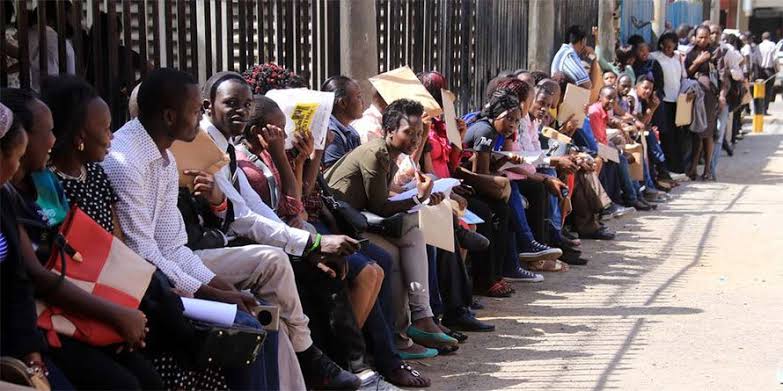Business
Due To Covid19 Pandemic – Revenue Has Dropped By Ksh20billion

Kenya Revenue Authority (KRA) tax collections in April dropped by Sh20.31 billion, reflecting the subdued business environment amid the Covid-19 pandemic economic hardships.
Latest data from the Treasury indicates that tax collections fell to Sh120.1 billion in April from Sh140.41 billion in same month last year, representing a 14.46 percent drop.
This is a rare drop that reflects lower collections from businesses struggling with lower sales and workers plagued by stagnant pay in an environment where firms have been shedding jobs in response to the coronavirus pandemic.
The effects of tax cuts imposed in April to cushion workers from the effects of the disease will be reflected in May data.
Treasury Secretary Ukur Yatani expects the under-performance in revenue collection to deepen in May and June as effects of travel restrictions, ban on mass gathering and the dusk-to-dawn curfew imposed to curb the spread of coronavirus take a toll on the economy.
Both imports as well as domestic consumption have slowed down as a result of the impact of the virus, hitting taxes.
The Sh20.3 billion drop came in a month when most companies pay corporation taxes for the first quarter of the year, an indication of firms reduced earnings power.
Companies started reporting falling sales ahead of Kenya announcing restrictions imposed to curb the spread of coronavirus.
Kenya, which has reported 1, 962 positive cases of Covid-19 and 64 deaths, has suspended commercial flights in and out of the country, banned public gatherings and imposed a nationwide curfew since March.
It has also halted movement in and out of five counties most affected by the virus, including Nairobi and Mombasa.
Kenya’s private sector activity declined sharply in April as businesses reeled from the impact of the coronavirus, according to a survey by Stanbic—which tracks business performance monthly.
The Markit Stanbic Bank Kenya Purchasing Managers’ Index (PMI) for manufacturing and services tumbled to 34.8 in April from 37.5 in March. Readings below 50.0 indicate a contraction.
“It’s safe to say that, at least with anecdotal evidence available so far, the epicentre of the Covid-19 impact on economic activity will be in the second quarter of this year,” said Jibran Qureishi, the economist for East Africa at Stanbic Bank.
Demand at home and in export markets slumped as consumers stayed indoors to avoid catching the virus and because of government measures to contain its spread.
“Output, new orders, exports and employment, all reached record lows,” Markit and Stanbic said.
This has hit payroll and corporate taxes, which account for more than half of government revenues, and import duty.
The government expects the economy to grow by as little as one percent this year, compared with a pre-pandemic forecast of about six percent, due to the impact of the disease.
Treasury data shows tax collections in the January-April period dropped Sh18.91 billion, or 3.94 percent, to Sh460.77 billion compared with the same period last year.
Revenue collection is expected to take a further hit following tax cuts that took effect in April to cushion the economy and the public against the impact of the pandemic.
Among the reliefs that the government offered were excluding workers earning less than Sh24,000 from paying taxes and lowering the maximum income tax rate from 30 percent to 25 percent. The government also lowered value-added tax (VAT) to 14 percent from 16 percent and cut corporate tax to 25 percent from the current 30.
The pandemic has caused the government’s budget deficit to swell to 8.2 percent of GDP in the financial year to the end of June, from an initial forecast of under seven, mainly due to reduced tax collection and foregone revenue in the form of VAT and income tax cuts.
Mr Yatani plans to “eliminate a long list of exemptions in the corporate income tax and VAT” in a bid to offset the impact of the tax reliefs “and to improve the efficiency of our tax system”.
“Staff projections assume that about 75 percent of the fiscal cost of the recently announced tax relief measures will be compensated for by reduced tax exemptions in FY20/21, with the remainder coming in the next two to three years, in accordance with the authorities’ aim to make the recent tax changes revenue neutral,” the International Monetary Fund staff wrote in a note on Kenya last month.
[Business Daily]
Kenya Insights allows guest blogging, if you want to be published on Kenya’s most authoritative and accurate blog, have an expose, news TIPS, story angles, human interest stories, drop us an email on [email protected] or via Telegram
-

 Grapevine1 week ago
Grapevine1 week agoAlleged Male Lover Claims His Life Is in Danger, Leaks Screenshots and Private Videos Linking SportPesa CEO Ronald Karauri
-

 Lifestyle2 weeks ago
Lifestyle2 weeks agoThe General’s Fall: From Barracks To Bankruptcy As Illness Ravages Karangi’s Memory And Empire
-

 Grapevine4 days ago
Grapevine4 days agoRussian Man’s Secret Sex Recordings Ignite Fury as Questions Mount Over Consent and Easy Pick-Ups in Nairobi
-

 Investigations2 weeks ago
Investigations2 weeks agoEpstein Files: Sultan bin Sulayem Bragged on His Closeness to President Uhuru Then His Firm DP World Controversially Won Port Construction in Kenya, Tanzania
-

 Business2 weeks ago
Business2 weeks agoKRA Can Now Tax Unexplained Bank Deposits
-

 Investigations1 week ago
Investigations1 week agoEpstein’s Girlfriend Ghislaine Maxwell Frequently Visited Kenya As Files Reveal Local Secret Links With The Underage Sex Trafficking Ring
-

 News1 week ago
News1 week agoState Agency Exposes Five Top Names Linked To Poor Building Approvals In Nairobi, Recommends Dismissal After City Hall Probe
-

 Investigations19 hours ago
Investigations19 hours agoMulti-Million Dollar Fraud: Three Kenyans Face US Extradition in Massive Cybercrime Conspiracy
















